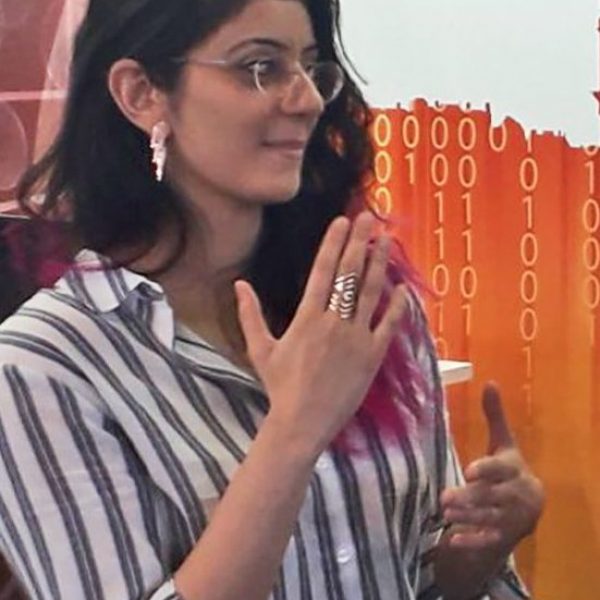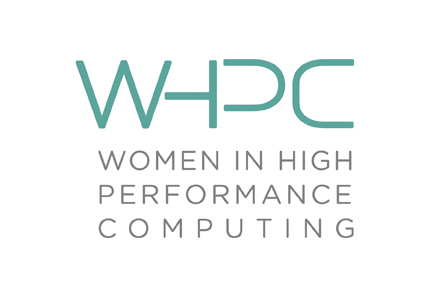Find you place in High Performance Computing
Written by Weronika Filinger and Neelofer Banglawala

Have you ever heard of High Performance Computing (HPC)?
Even though HPC is at the forefront of many scientific disciplines, driving innovation in many industries, it is likely you have not. HPC is a multidisciplinary field employing cutting-edge computing technology to improve our lives. From weather forecasting, designing new and more effective drugs, safer vehicles and earthquake-proof buildings, to simulating natural disasters and finding ways of preventing them and mitigating their effects. If you are thinking about a career in STEM, sooner or later you will encounter computational science, which, at large scale, will lead you to HPC.
The term computational science encompasses all scientific disciplines that make use of computer simulations to solve complex problems. Why use computers? Because some problems are too big, too small, too far away, too expensive or too dangerous to study otherwise. For example, some biological processes happen too quickly and at a scale that cannot be accurately captured by experiments. Others, like star formation, cannot be observed due to the large scales in time and space. If you could test engine designs for planes, eliminating those that are ineffective, would you insist on building all such designs to test in your lab? Computational science not only allows us to study things that would otherwise be impossible, it also saves us money, time and energy and helps keep us safer.
HPC is often referred to as “supercomputing”, but what makes the computing “super”? In short: the sheer size of the systems. The biggest supercomputers have hundreds of thousands to millions of CPU cores! A laptop typically has 4 cores. But how to make use of all those cores to solve challenging scientific problems? That’s what HPC is about – exploiting the computing capabilities of supercomputers to solve the problems in parallel: from designing new computer architectures using novel technologies, to creating new cutting-edge software such as operating systems, schedulers, compilers, scientific libraries and parallelised scientific applications. HPC is so important to advancing the frontiers of science that many countries have their own national HPC service, like ARCHER2 in the UK.
Many roads lead to HPC
HPC is truly interdisciplinary and diverse. It is fast-growing in many ways – from the number of new HPC users and developers, through to the disciplines using HPC for the first time, to the complexity of software and hardware solutions. We are also seeing the convergence between Artificial Intelligence (AI), machine learning (ML) and HPC. There are therefore many ways to get involved with HPC.
You do not need to have a computer science degree or a specific scientific background to pursue a career in HPC, although this is the typical of many people in HPC. You also do not need to have a PhD or Masters degree. HPC offers a variety of different roles, hardware-focussed to software-focused, with anything in between. For example, you could be a hardware designer, an HPC system administrator, a developer of software tools or of optimised numerical libraries and novel algorithms or a research software engineer. There are also many different places where you can work – HPC centres, scientific labs, universities, hardware vendors (e.g. Intel or NVIDIA), software companies, industry, financial institutions such as banks and so on. HPC is used everywhere!
Meet the Faces of HPC
HPC is a career path available to everyone. To see more “Faces of HPC” visit: http://www.hpc-diversity.ac.uk/faces-of-hpc

Weronika Filinger moved to Edinburgh from Poland when she started her degree in Mathematical Physics, which she completed with an MPhys in 2011. She did not want to pursue a career in Physics, so decided to do an MSc in HPC. It took a year of working random jobs to save enough money to pay for half of her tuition fees, and a loan to pay for the other half. Now, she is an HPC Application Consultant and has been working in HPC for over 6 years. She works with scientific software, but also teaches online postgraduate courses, and is involved in a number of international HPC education related initiatives. She is a core member of the Women in HPC (WHPC) organisation and the co-chair of one of the UK chapters, and her work has taken her to many places in Europe and around the world – including South Africa, Japan, and the USA.

Neelofer Banglawala comes from what you might call a “disadvantaged” background. With no fixed idea about what she wanted to do when she “grew up”, she decided to follow her interests and studied maths and physics at university. As an undergraduate, she learnt to write her first computer program. She enjoyed maths and physics so much she decided to do a PhD, and that is when she came across supercomputers and “parallel programming. She now spends most of her time as a Research Software Architect in HPC and data science, creating and improving research software across different scientific disciplines: from using machine learning to analyse oil wells to the complex modelling of bones using supercomputers. In addition to her technical work, Neelofer has taught many courses on HPC concepts and scientific python. Neelofer’s work has taken her around the world and she enjoys being part of a truly global community. “Working in HPC is exciting as it exposes you to new technologies and the computational challenges at the frontiers of scientific research”.

Craig Morris is originally from Jamaica, Craig has been intrigued with electronic gadgets from a young age, taking them apart, fixing them and modifying them. He began studying Computing and Electronics at the University of Edinburgh but switched to Electrical and Electronics as he was more interested in that. After his Masters in chip design, he saw a vacancy for a computing officer at the University and thought: “computing officer, that must have some electronics in it!” He got the job and has been working in HPC ever since. He is now a Senior HPC Systems Specialist and spends his time working with the latest technologies, whilst addressing the challenges of energy-efficient use of parallel technologies. The projects he works on can be complex and challenging, for example using commercial software and applications with new and unfamiliar hardware technologies, often requiring a steep learning curve, but he enjoys the challenge and knowing that he has provided yet another HPC service to help researchers advance science is very rewarding.
Diversity and community
Women and minorities remain underrepresented in HPC, and often more severely than in other STEM disciplines. And yet, HPC naturally has the potential to be truly inclusive. Most of our work can be done remotely, we collaborate with people across the world, with many people working in several different countries over the span of their careers. Diversity enriches HPC!
The HPC community knows that things need to change. There are a number of organisations like Women in HPC (https://womeninhpc.org/) and projects such as HPC diversity (http://www.hpc-diversity.ac.uk) increasing awareness about the importance of diversity and inclusivity in creating a healthy and productive workplace.
Working in HPC is not just about doing a technical job, also being part of the community. Even as a student you can be an active member, contribute to events and learn along the way. We know that HPC may be difficult to encounter for some students, so there are a number of programs associated with different organisations and conferences that help students get started with HPC. Here are two examples.
One of them is the Summer of HPC internship program run by PRACE (https://summerofhpc.prace-ri.eu/).
Another is the student program run during the Supercomputing Computing (https://sc21.supercomputing.org/program/studentssc/), which is the biggest HPC conference in the world. The SC21 program promises to have many interesting and useful events – some of them focusing on HPC, and other on skills necessary to thrive in your chosen career, whatever that may be.
There are many other events happening both globally and locally, in-person (not during the global pandemic) and online – now that you know about HPC you will be able to search for them. Do not worry that you do not know enough. As long as you are willing to learn you will be fine. HPC is such a fast-paced discipline that quite often it is not a question of what you know but how fast you can learn the things that you do not know. Also, no one knows everything, we specialise in different things and so our colleagues are often the main source of our information.
Curious to know more? Have a look at some of the additional resources included below and consider doing a career in HPC.
Useful resources
The WHPC website – https://womeninhpc.org/ – includes a wealth of information, as well as mentorship, fellowship and job opportunities.
The EPCC website – https://www.epcc.ed.ac.uk/ – includes information about the work we do, as well as training, education and outreach opportunities.
PRACE Summer of HPC – https://summerofhpc.prace-ri.eu/. The program offers summer placements at HPC centres across Europe. The applications usually open in January.
Student Program@SC’21 – https://sc21.supercomputing.org/program/studentssc/. The programme is part of the biggest HPC conference in the world, and offers a number of activities for students.

